I believe it was Kafka who once noted that an artist always strives to align his internal world with his external world; the thoughtful reader can make of that what they will (serial killer? psychotic third-world dictator?) and no one will be the wiser. Judging from the above farrago of ink and words, this artist has much self-adjustment to do in the Internal World Department.
However, the appearance this week in bookstores of Hans Rickheit’s comix masterpiece, The Squirrel Machine, is a genuine milestone in the above-mentioned artistic business of reconciling one’s inside to one’s outside, so much so that I must confess that I am truly taken aback by Rickheit’s entire effort, in the best sense of the word.
This carefully constructed tale of two pariah brothers in turn-of-the-century New England, both of them obsessed with oneiric experiments of an unsettling and fascinating nature, strikes me as being one of the few original works of art that I’ve seen published in North America over the last two decades, on a par with the better work of Dan Clowes or Charles Burns. It possesses a nicely syncopated structural rhythm moving betwixt various opposites: dream-matter & quotidian reality, concealment & performance, decay & lust, sentient & sapient, even animate & inanimate.
The two brothers experiment upon themselves and others in their hermetic quest, which begins as musical efforts of a Grand Guignol nature and then metastasizes into the most floridly baroque variations upon the ancient themes of lust, power, love and fear.
This is not a tale for the squeamish nor is it a tale for the literal-minded; it is very much a bravura performance in the tradition of Surrealism, or Fantastic Art, or even Symbolism; a anti-realistic spectrum which ranges on one hand from the Mozartian heights of Carrollian Nonsense to the nihilistic abyss of the Comte de Lautréamont. In particular, Rickheit has drunk deeply at the more obscure Central European and German waters of this undercurrent : the younger Max Ernst, Hans Bellmer, Bruno Schulz, Jan Svankmajer, Jan Lenica, Max Klinger and even deeper in the past, E.T.A. Hoffman, Hieronymus Bosch, Hans Baldung Grien, etc.

Rickheit's methodical draftsmanship in the service of the
Underbrain, a sample spread from the Squirrel Machine
The ultra-logical transformation of the ordinary detritus of everyday life (Biedermayer knick-knacks, farm implements, medical devices) into the supercharged playthings of the Underbrain’s Dreamworld was the special preserve of Bellmer and Schulz, and their exquisitely corpse-like juxtaposition of animal sentience upon the human sex drive was their supreme gift to Surrealism; Rickheit has deeply absorbed this lesson and incorporated it into his work.
I am also relieved to say that except for the nihilistic ending of the tale, Rickheit eschews histrionics; the Squirrel Machine is emotionally controlled in a suitably automated sort of way, its precision of tension between meaning and white noise is so well-calibrated that the observant reader unconsciously ceases to resist Rickheit’s oneiric anti-logic.
To those readers who might be wondering what all this has to do with the Snark, I would caution them that behind the respectable and healthy facade of Carrollian Nonsense lurks an unfathomable abyss upon which the former depends for its very life. This behind-the-scenes darkness is not to everyone's taste but it is essential to the health and maintenance of the larger enterprise, it nourishes Nonsense and much more besides in art and literature.
Rickheit has furnished us with a Baedeker to the darker rooms behind this Anti-Naturalist facade, a few doors past classical Surrealism, further down the hall to an unmarked anteroom frequented by the cognoscenti of the Underbrain, a semifurnished room where something deeply unsettling yet still basically logical waits for us. This thread of elemental logic binds us still to Carrollian Nonsense and Rickheit’s teasing of its strands may be cruel at times, but never destructive towards the larger artistic project of imposing meaning upon the unknown.
In short, strongly recommended! In addition, kudos to Fantagraphics for publishing Rickheit. Despite the current renaissance in North American comix, a lot of comix work is still intellectually provincial and dominated by threadbare pop-culture aesthetics. When it comes to putting out quality comix, Messers Thompson and Groth still get it. Show ‘em that you also get it by buying this work, and others in the same vein!
The Squirrel Machine, by Hans Rickheit; 179 pages with an introduction by E. Stephen Frederick; available for purchase from Fantagraphics here. Not recommended for younger readers.

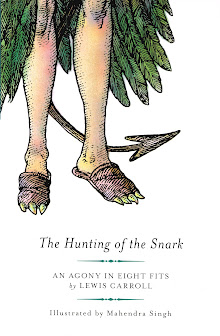

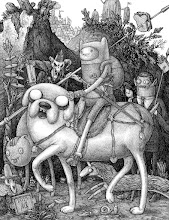
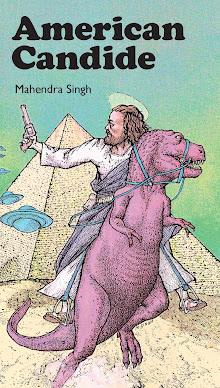

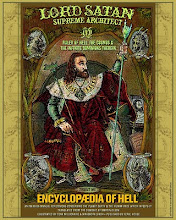
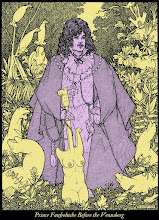
No comments:
Post a Comment